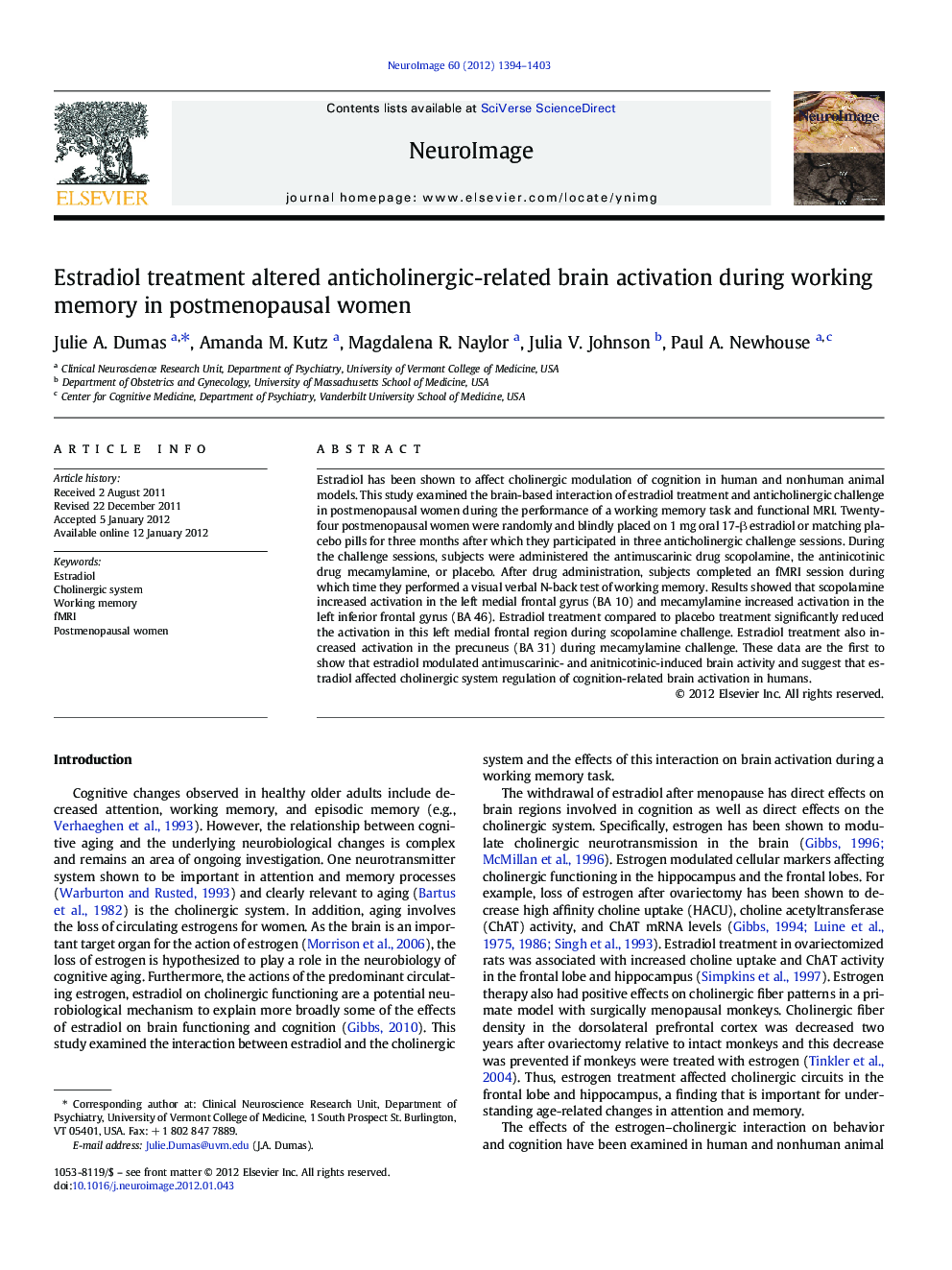| Article ID | Journal | Published Year | Pages | File Type |
|---|---|---|---|---|
| 6032154 | NeuroImage | 2012 | 10 Pages |
Abstract
Estradiol has been shown to affect cholinergic modulation of cognition in human and nonhuman animal models. This study examined the brain-based interaction of estradiol treatment and anticholinergic challenge in postmenopausal women during the performance of a working memory task and functional MRI. Twenty-four postmenopausal women were randomly and blindly placed on 1 mg oral 17-β estradiol or matching placebo pills for three months after which they participated in three anticholinergic challenge sessions. During the challenge sessions, subjects were administered the antimuscarinic drug scopolamine, the antinicotinic drug mecamylamine, or placebo. After drug administration, subjects completed an fMRI session during which time they performed a visual verbal N-back test of working memory. Results showed that scopolamine increased activation in the left medial frontal gyrus (BA 10) and mecamylamine increased activation in the left inferior frontal gyrus (BA 46). Estradiol treatment compared to placebo treatment significantly reduced the activation in this left medial frontal region during scopolamine challenge. Estradiol treatment also increased activation in the precuneus (BA 31) during mecamylamine challenge. These data are the first to show that estradiol modulated antimuscarinic- and anitnicotinic-induced brain activity and suggest that estradiol affected cholinergic system regulation of cognition-related brain activation in humans.
Related Topics
Life Sciences
Neuroscience
Cognitive Neuroscience
Authors
Julie A. Dumas, Amanda M. Kutz, Magdalena R. Naylor, Julia V. Johnson, Paul A. Newhouse,
